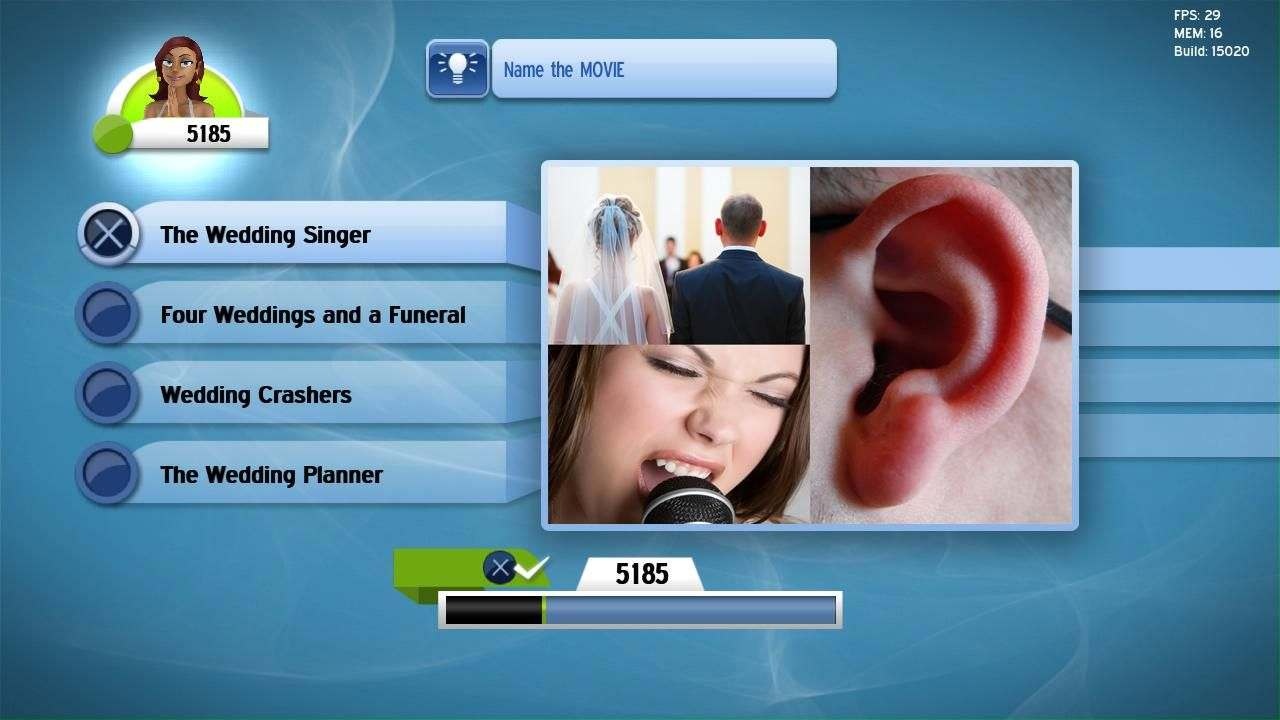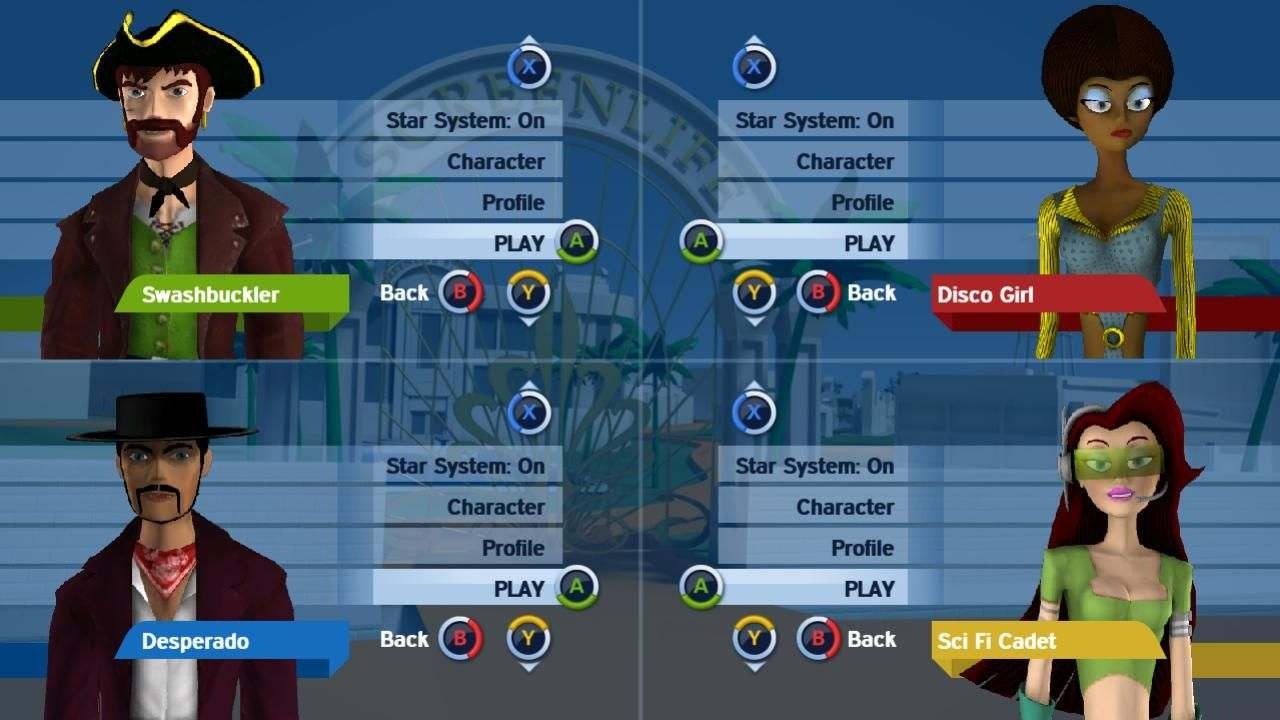Scene It? Bright Lights! Big Screen! is the third major console release and the first multiplatform offering for the popular DVD-based board game. Unfortunately, like many popular film trilogies, Scene It seems to have reached its peak a bit too early. If you have played either of the first two games in the series, the newest iteration will feel like little more than a pricey expansion pack. Although Bright Lights! Big Screen! lacks some of the best features of its predecessors, the uninitiated player will still find plenty of party-friendly fun.

Scene It is a four-player movie trivia game with questions from films of the past four decades up through the earlier half of 2009. As before, there are three main multiplayer modes. Party Play consists of nonstop puzzles with drop-in, drop-out multiplayer. In keeping with the party moniker, there's really no reason to play this mode unless you have a large group of people who want to take turns with the buzzer. The more structured Play Now mode offers short and long game types consisting of three or five rounds. Fast Fire is the new single-player mode that gives you five minutes to answer as many questions as quickly as you can. Wrong answers deduct from your total available time, and the object is simply to reach a high score. This is a decent option if you're in the mood for a quick Scene It fix by yourself, but the lack of leaderboards means it won't be your main attraction.
The Xbox 360 version still supports the official big-button controllers. These are decidedly more fun to use, but the traditional gamepad also works if you can't track down four buzzers. Each round begins with a movie clip and accompanying questions. You'll occasionally see clips from the same movies, but if a repeat clip pops up, there are plenty of different questions for each film. Clips can easily turn the game around if a player who is behind in points is also the only one who recognizes the movie. The new star system in Scene It is also designed to help out players who are lagging behind. Instead of handing out random bonus points to each contestant after a round, this time, you'll earn stars that can be traded in for an opportunity to earn a score multiplier for the next round. The player who cashes in his or her stars determines who actually gets the multiplier by stopping a meter that revolves with everyone's names on it. This makes it risky to try because you can easily give the lead player yet another boost if your timing is bad.
Most of the puzzle types are holdovers from previous Scene It games. This means you'll get such favorites as Pixel Flix and Child's Play where you have to guess a movie from an 8-bit or child's artistic interpretation, respectively. You're also stuck with more mundane puzzles, such as sequentials, in which you put four films in order of their release dates, or solve anagrams that makes you figure out a movie's name based on jumbled letters. Depending on the question type, players will either buzz in for the opportunity to answer or engage in a free-for-all where each player has an opportunity to answer before time runs out. The latter option tends to work better because the minimal use of onscreen indicators makes it difficult to tell if you're the player who buzzed in first.
If you've played Scene It before, one of the first things you'll notice in this installment is the simplified presentation. Initially, the audiovisual refit is beneficial because it speeds the game along. Instead of spending time traveling to different areas of a movie set, the next puzzle type is introduced as soon as you finish the previous one. The host, who tends to be more annoying than entertaining, can be turned on or off to suit your tastes. However, the novelty of this streamlined interface quickly gives way to reveal a disappointing bargain-basement audio and visual style that becomes grating. Instead of the avatar support introduced in the previous game, Bright Lights! Big Screen! features various film archetypes, such as the leading man, sci-fi cadet, or martial artist as playable characters. Each character has a set of expressions and exclamations that repeat far too frequently and will become annoying before the end of your first game. Animations and cutscenes suffer from the same halfhearted aesthetics and look as if they were taken from the early days of computer-generated imaging rather than modern-home consoles.

The Xbox 360 version of Bright Lights! Big Screen! is a disappointment when compared to previous games on the platform. Online play, leaderboards, and avatar support are all absent, despite their inclusion in earlier games. The subpar visuals are even more glaring when viewed next to other installments. If you've never played Scene It before, Bright Lights! Big Screen! will serve up plenty of multiplayer fun. The wide variety of movie genres and time periods means that casual movie fans and fanatic film buffs of any age can enjoy the trivia challenge. Unfortunately, if you fancy yourself a Scene It guru, the addition of minimal new puzzle types and game modes makes Bright Lights! Big Screen! feel like an expansion pack that would have been better suited as downloadable content.